More than half of the Republican nominees for the 35 US Senate seats being contested in the 2022 midterms have challenged the legitimacy of the 2020 election – rejecting, raising doubts about or taking steps to overturn President Joe Biden’s victory.
A CNN analysis found that at least 19 of this year’s Republican nominees have contested or refused to affirm the 2020 results. The list includes five incumbent senators and 11 other candidates who have at least a reasonable chance of winning in November.
The success of election deniers in Republican Senate primaries around the country – from the southern border to the northern border; in swing states, conservative states and liberal states; among established officeholders and first-time candidates – is yet more evidence of the broad support among party voters for former President Donald Trump’s lie that the election was stolen.
The 19 Republican Senate nominees on this list of election deniers and doubters join at least 11 Republican nominees for state secretary of state and at least 22 Republican nominees for governor. US senators generally have less power over elections than secretaries of state and governors do, but they do have the power to object to certifying electoral votes, to write and vote on election legislation, and sometimes to hold hearings and issue subpoenas on election issues.
Not all election deniers are alike. Some of the Senate candidates on the list have made formal attempts to reverse the will of the American people – for example, by voting to reject the congressional certification of electoral votes Biden won – while others have made false claims from the sidelines. Some of the candidates have aggressively spread specific conspiracy theories; others have evasively complained of “irregularities” and refused to answer directly when asked whether Biden was legitimately elected.
We will update the list if we find evidence that additional Senate nominees should be included. (There has been little media coverage of some longshot nominees, like Bob McDermott of Hawaii and Gerald Malloy of Vermont.) Here is the rundown as it stands in mid-September now that the primary elections have concluded.
Alabama: Katie Britt

Alabama Republican nominee Katie Britt told NBC News in May 2022 that she would have objected to the 2020 election results if she had been in the Senate on January 6, 2021. The next month, she told Fox: “I’ve said many times that there were major problems with the 2020 election, and we have to make sure that we uphold the integrity and security of our elections. I’ve called for a forensic audit to make sure we get to the bottom of it and that people can have faith in our electoral process.”
AL.com reported in March 2022 that Britt would not go so far as to agree that the election was “stolen,” but Britt also didn’t reject that false notion. Instead, she responded indirectly, saying: “I believe that there was fraud. I think you have to have a forensic audit. You have to give people peace and clear confidence that their vote is going to matter the next time.”
Britt is the former chief of staff to outgoing Sen. Richard Shelby and former chief executive of the Business Council of Alabama. Her Democratic opponent is Will Boyd, a pastor who once served as a city councilman in Illinois.
Britt’s campaign did not respond to a request for comment for this article.
Arizona: Blake Masters

Arizona Republican nominee Blake Masters has been explicit in declaring that “the 2020 election wasn’t free or fair.” In an ad Masters released in November 2021, early in the Republican primary, he said, wrongly, “I think Trump won in 2020.”
The rest of the ad was more subjective; Masters argued that Trump would have won in a “fair fight” without supposed anti-Trump media bias, “big tech” suppression of a late-election story about Biden’s family, and some states having changed their rules to allow for easier mail-in voting. But Masters’ ad-opening claim that Trump actually did win is plain false.
Masters, a venture capitalist, has also made or promoted other false claims about the 2020 election. Two days after the election, Masters chided the media for supposedly declining to investigate claims about ballots being cast in the names of dead people in some Democratic-dominated cities; the claims appeared dubious from the start, and media outlets were investigating them – and debunking them. In September 2021, Masters echoed one of Trump’s favored conspiracy theories, falsely declaring that opinion polls that showed Biden with big leads during the 2020 campaign were “designed to suppress the Trump vote.”
At a campaign event in June 2022, Masters spoke supportively of the baseless suggestion that there is mass cheating in the vote-counting process. He said he couldn’t prove his father wrong when his father told him that, if Masters were to win his Senate race by 30,000 votes against Democratic incumbent Sen. Mark Kelly, “I think that they’ll find 40,000 for Mark Kelly.” Masters added, “I think there’s always cheating, probably, in every election. The question is, what’s the cheating capacity? I don’t know exactly how many illegal and legal votes each of Trump and Biden got in 2020, but I look at all the signs, I look at things going wrong…”
At the end of the Republican primary in early August, Masters’ campaign website claimed that “if we had had a free and fair election, President Trump would be sitting in the Oval Office today.” After Masters won the primary, CNN’s KFile team reported, that language was removed from the site and replaced with this vague declaration: “We need to get serious about election integrity.”
Masters’ campaign did not respond to a request for comment for this article.
California: Mark Meuser

Earlier this year, California Republican nominee Mark Meuser told television station KPIX 5 of the 2020 election: “There are so many irregularities about this election that I do not feel any American who looks at it can have confidence that they know what the actual results are.”
Meuser, a lawyer who was trounced in a California secretary of state election in 2018 and in a state Senate election in 2012, is making a longshot challenge to incumbent Democratic Sen. Alex Padilla, who beat him in the 2018 secretary of state race. Meuser’s campaign did not respond to a request for comment for this article.
Georgia: Herschel Walker

Herschel Walker, the Georgia Republican nominee and a former football star, has made a variety of wild false claims about the 2020 election.
In a tweet on January 6, 2021, after the Capitol was attacked by pro-Trump rioters, Walker said he wanted Trump to get to the bottom of “who stole this election.”
In late 2020 and early 2021, Walker falsely declared he could “guarantee you” that Biden “didn’t get 50 million people voting for him” (in fact, more than 81 million people voted for Biden), promoted a baseless conspiracy theory about Dominion Voting Systems technology and another conspiracy theory about imaginary vote-stealing software, said Georgia should refuse to certify Biden’s victory Georgia victory because of “serious Election Fraud,” wrongly alleged “Country wide election fraud,” and proposed that all votes in Georgia, Arizona, North Carolina, Pennsylvania, Michigan, Nevada and Wisconsin be tossed out and that these seven states – six of which were won by Biden – “vote again.”
In May 2022, Walker told reporters that “I don’t know” whether Biden was lawfully elected and that there were “problems” with what happened in the election, The New York Times reported.
Walker is challenging incumbent Democratic Sen. Raphael Warnock. Walker’s campaign did not respond to a request for comment for this article.
Kentucky: Rand Paul

Incumbent Kentucky Sen. Rand Paul voted to certify Biden’s victory on January 6, 2021, noting that “it was never intended by our founders that Congress have the power to overturn state-certified elections.”
But Paul has also made false claims about the 2020 election. He declared at a Senate hearing in December 2020: “The fraud happened. The election in many ways was stolen.” As a supposed example, Paul said, “We can’t just say, ‘Oh, 4,000 people voted in Nevada that were non-citizens, and we’re just going to ignore it. We’re going to sweep it under the rug.’” There is no evidence of thousands of non-citizens voting in Nevada; an investigation by the office of Nevada’s secretary of state, a Republican, later found that fraud wasn’t proven by the data that Republican activists had cited to make this allegation.
Three days after the election in November 2020, Paul tweeted that while it is usually difficult for “voter fraud in absentee voting” to affect the outcome of an election, there were many more mail ballots than usual this time. (Again, voter fraud didn’t affect the outcome.) Paul went further later that month, falsely claiming on Twitter, “When the media says no evidence of widespread fraud, perhaps they mean no evidence, if you look the other way…” (He linked to an article that did not demonstrate fraud.) In another November 2020 tweet, Paul asked people to “decide for yourself” whether so-called “data dumps” late on the night of the election – in reality, just votes being counted and publicly reported – represented fraud or statistical anomalies.
Paul has also made a subjective argument that state officials acted improperly by changing election rules without approval from state legislators. Paul spokesperson Kelsey Cooper said in an email to CNN in August 2022: “Senator Paul voted to accept the state certified electors consistent with the constitutional mandate that states conduct elections. Discussing election fraud is in no conceivable way an incitement to anything but legislative reform. Senator Paul will continue to advocate that no state official can change election law without a vote from the majority of the state legislature.”
Paul’s Democratic opponent is former Kentucky state representative Charles Booker.
Louisiana: John Kennedy
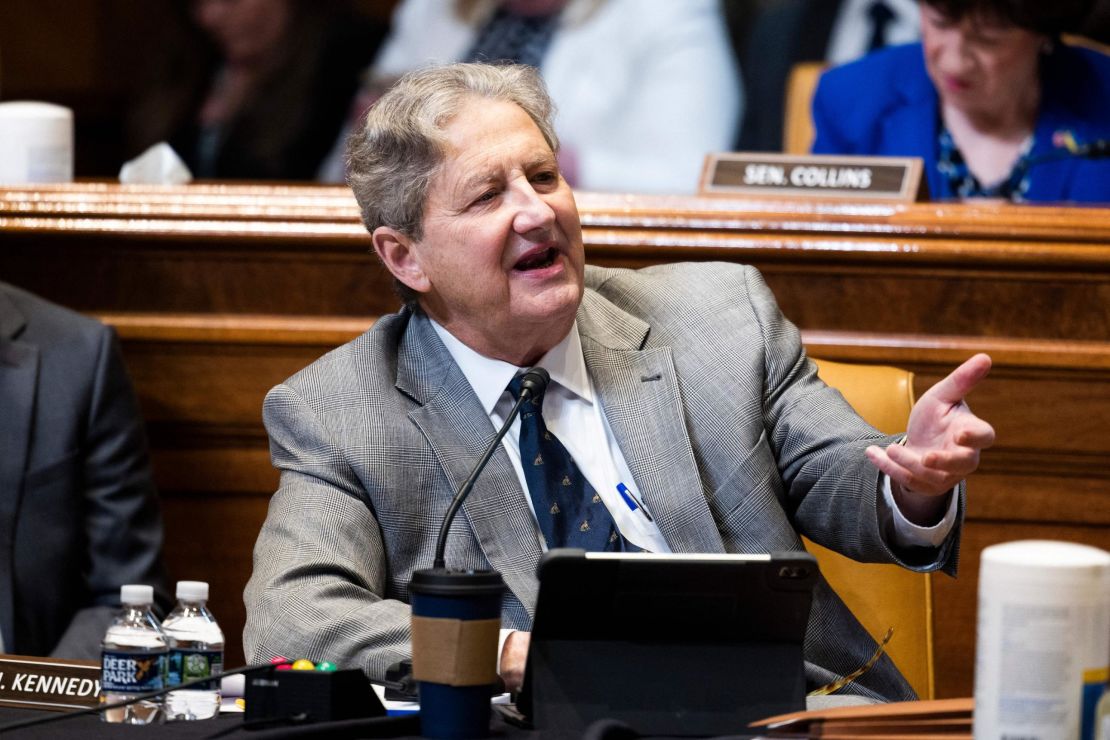
Incumbent Louisiana Sen. John Kennedy objected to the certification of Biden’s victory in Arizona, though Kennedy voted to certify Biden’s victory in Pennsylvania.
Kennedy has tried to differentiate himself from congressional colleagues who wanted to overturn the entire election. He said in a May 2021 interview with WWL-TV that he chose to object only to Biden’s victory in Arizona because Biden would still have prevailed without that state’s 11 electoral votes.
Nonetheless, Kennedy still attempted to override the will of millions of Americans. And he has broadly questioned the legitimacy of the election as a whole.
Days before the votes on January 6, 2021, Kennedy issued a statement, along with some of his Republican colleagues, that said: “By any measure, the allegations of fraud and irregularities in the 2020 election exceed any in our lifetimes.” (There were indeed many allegations of fraud, but there was a tiny amount of actual fraud.) And in December 2020, Kennedy sent out a fundraising email, previously reported by the Louisiana Illuminator, in which he wrote that there had been “a lot of tomfoolery and a few too many shenanigans with this election” and that “I’m thinking we may need to take a second look at those ballots and the legitimacy of this election.”
That email also tried to straddle both sides; Kennedy wrote, “I’m not saying that something DID happen, but I’m not so sure something DIDN’T HAPPEN.” Kennedy has continued to say such things since. He said in the May 2021 interview: “You will never find where I ever said, anywhere, that the election was stolen or not stolen. You won’t find it.” After alleging in the interview that Democrats in some states “exploited the pandemic to change their states’ election laws in an unconstitutional manner,” he added, “Now having said that, I have never seen demonstrated evidence, proven in a court of law, that it made a difference. I’m not saying it did, I’m not saying it didn’t.”
Kennedy is the top Republican in Louisiana’s open primary, whose field also includes a group of Democratic candidates. Kennedy’s office declined to comment for this article.
Maryland: Chris Chaffee

Chris Chaffee, the little-known Republican Senate nominee in Maryland, has falsely called the 2020 election “fraudulent” and “corrupt” and baselessly referred to “this coup against the President and the election.” He has also promoted specific baseless conspiracy theories about the election, like one about voting machines.
Chaffee, who was routed in a 2014 congressional race against Democratic incumbent Rep. Steny Hoyer, is now a major underdog to incumbent Democratic Sen. Chris Van Hollen.
Asked for his stance on the legitimacy of Biden’s win, and whether he stands by his expressed opinions that the election was fraudulent and corrupt, Chaffee said in an email to CNN last week: “My stance is this is September 6, 2022 and we need to move forward. The general election for 2022 is November 8, 2022. Please concentrate on that. We must ensure that in the 2022 United States elections have integrity.”
Missouri: Eric Schmitt
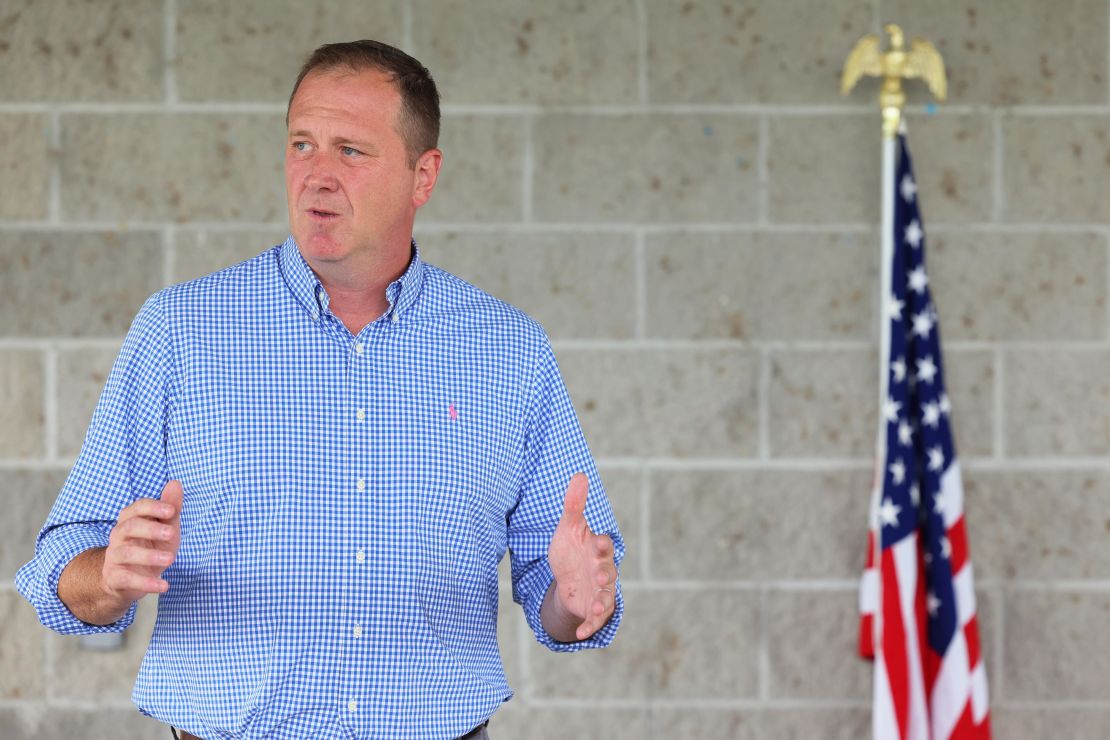
As Missouri’s attorney general, Republican Senate nominee Eric Schmitt supported a December 2020 effort to overturn the election – signing on Missouri to the Texas-led lawsuit that sought to get the Supreme Court to rescind Biden’s victory.
Schmitt is running against Democrat Trudy Busch Valentine, a nurse and an heir to the Anheuser-Busch beer fortune, for the open seat being vacated by retiring Republican Sen. Roy Blunt.
Schmitt’s office did not respond to a request for comment for this article.
Nevada: Adam Laxalt
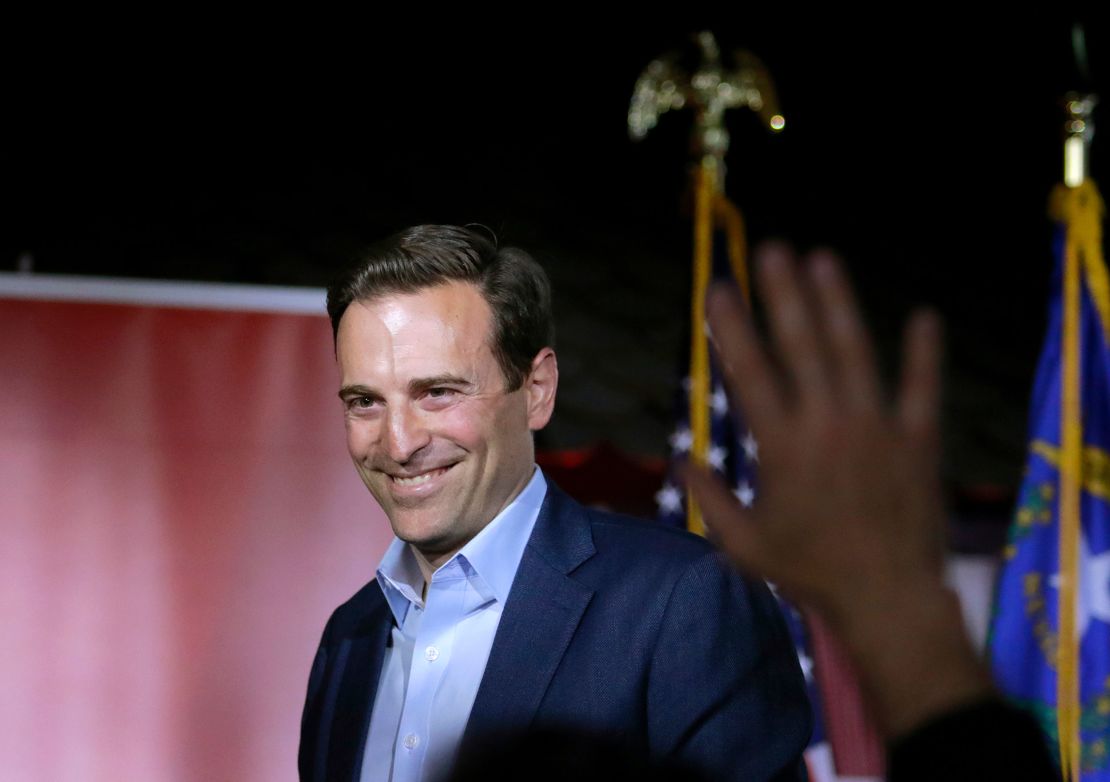
Nevada Republican nominee Adam Laxalt, who co-chaired Trump’s 2020 campaign in Nevada, played a leading role in post-election legal efforts to reverse Biden’s victory in the state.
Laxalt, the former Nevada attorney general, wrote a November 2020 article that falsely claimed “we now know that there are thousands of illegal votes consisting of a combination of dead voters, out-of-state voters, double voters (those who cast ballots in Nevada and another state), among other improper votes.” None of these claims was accurate; the subsequent review by the office of Nevada’s Republican secretary of state did not find “evidentiary support” for fellow Republicans’ various fraud claims.
In other comments in November 2020, Laxalt said the number of improper ballots in Nevada could even be in the tens of thousands. He also cast aspersions upon the demonstrably legal votes of members of the military who voted in Nevada after being transferred to other states.
And he continued to make false claims about Nevada elections long after Republican efforts to overturn Trump’s defeat fizzled. Days after launching his Senate campaign in August 2021, Laxalt falsely said the 2020 election was “rigged” and floated the idea of filing “early” lawsuits related to the midterms. At campaign events in October 2021, NBC News reported, he baselessly told voters that elections are legitimate in the state’s 15 rural counties but are untrustworthy in the two urban counties where well over 80% of the state population lives. That same month, he declined to answer directly when a reporter asked him if Biden was legitimately elected.
Laxalt is challenging incumbent Democratic Sen. Catherine Cortez Masto. Laxalt’s campaign did not respond a request for comment for this article.
New Hampshire: Don Bolduc

Don Bolduc, a retired Army brigadier general who won the New Hampshire Republican nomination on Tuesday, was unabashed during the Republican primary in falsely declaring that Biden’s victory was illegitimate. Bolduc said at an August debate in New Hampshire’s Republican primary: “I signed a letter with 120 other generals and admirals saying that Donald Trump won the election and, dammit, I stand by” it.
That comment, previously reported by The New York Times, appeared to be a reference to a May 2021 letter that vaguely suggested the election results did not reflect the will of the people.
Bolduc was more explicit in his own comments, baselessly saying in 2021 that “I think there was a tremendous amount of fraud across this country and in every state” and falsely claiming in 2021 that New Hampshire’s Republican governor and federal Democratic incumbents have won races by “mathematically impossible” margins.
On Thursday, two days after entering the general election against incumbent Democratic Sen. Maggie Hassan, Bolduc flip-flopped on the 2020 election. He said on Fox that after doing research and spending “the past couple of weeks” talking to New Hampshire residents, “I have come to the conclusion – and I want to be definitive on this – the election was not stolen.” He said that while there was fraud in the election, Biden is unfortunately “the legitimate president of this country.”
After a Fox host noted that Bolduc’s new comments were quite a change from his declaration just a month ago that Trump won, Bolduc said, “We all have time to make up – you know, to make up for mistakes or for things that we’ve said that aren’t accurate. And that’s part of learning, that’s part of listening.”
Bolduc is challenging incumbent Democratic Sen. Maggie Hassan. Bolduc’s campaign did not respond to a request for comment for this article.
North Carolina: Ted Budd
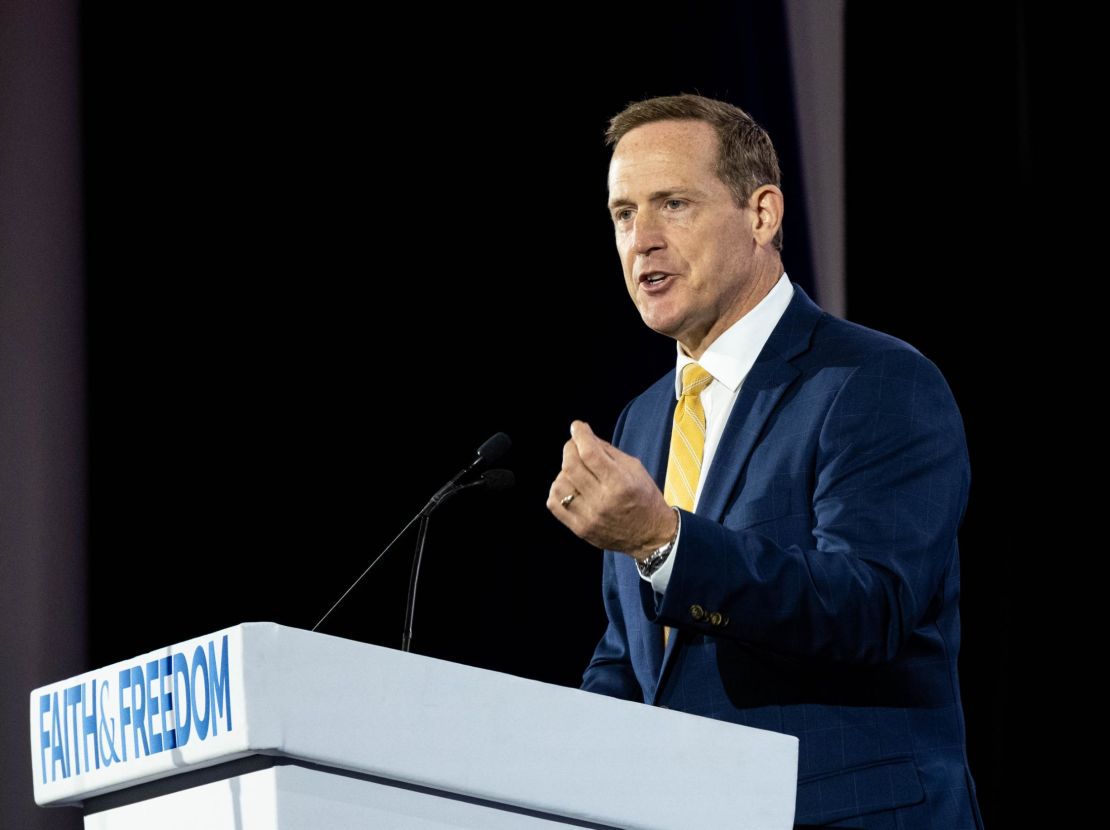
On January 6, 2021, North Carolina Rep. Ted Budd voted to object to the congressional certification of Biden’s victories in Pennsylvania and Arizona.
Budd also expressed support in December 2020 for the Texas-led lawsuit that sought to overturn Biden’s win. And three days after the election in November 2020, Budd joined some of his House Republican colleagues in sending a letter to the US attorney general demanding action in relation to “widespread reports of irregularities, particularly in the vote counting process” – though the votes were counted accurately and the usual scattered errors were quickly corrected.
When an Associated Press journalist asked Budd later in 2021 if Biden won the election fair and square, Budd responded, “He did. He’s the legitimate president.” But after the clip of Budd’s comments was circulated in early 2022 by backers of one of his opponents in the Republican Senate primary, Budd claimed he had been taken out of context. He told Queen City News in April 2022 that Biden “is the president, but I have tremendous constitutional concerns about how the election of 2020 happened.”
In a CNN interview in May 2022, Budd declined even when pressed to say Biden won the election. Instead, he said that Biden is the current president but that he has “constitutional concerns” about the election.
Budd is running against Democrat Cheri Beasley, a former chief justice of the state Supreme Court, for the Senate seat being vacated by retiring Republican Sen. Richard Burr. Budd’s campaign did not respond to a request for comment for this article.
Ohio: J.D. Vance

When J.D. Vance was asked by Spectrum News in January 2022 whether he felt the election was stolen, Vance responded, “Yeah, I do.”
Vance continued: “I mean, look, I think the fundamental problem is we had a massive effort to shift the election by very powerful people in this country. I don’t care whether you say it’s rigged, whether you say it’s stolen…”
As Ohio’s Republican primary continued, Vance explicitly claimed that “I think the election was stolen from Trump.”
Vance, a venture capitalist and author who won the primary in May 2022, has based some of his argument on unproven assertions that the actions of Facebook and founder Mark Zuckerberg, who donated hundreds of millions of dollars to support the activities of local elections offices around the country amid the Covid-19 pandemic, were meant to swing the election to Democrats. (A spokesperson for Zuckerberg told The New York Times this year that the donations were a one-time effort amid a national health crisis “to help ensure that Americans could vote.”) But Vance has also made provably false claims about the election.
Vance told Youngstown’s The Vindicator newspaper in October 2021 that “there were certainly people voting illegally on a large-scale basis,” though that is not true. And though Vance said the election in Ohio was “pretty gold standard,” he also said “I think it’s probably true that Trump won by a larger margin in Ohio,” though there is no basis for questioning Trump’s certified 8-point margin of victory there.
Vance said in July 2021 that “I think Josh Hawley did the right thing” in objecting to the certification of some Biden-won states, Time magazine reported.
Vance’s Democratic opponent is Rep. Tim Ryan; they are competing for the seat being vacated by retiring Republican Sen. Rob Portman. The Vance campaign did not respond to a request for comment for this article.
Oklahoma: James Lankford

In December 2020, incumbent Oklahoma Sen. James Lankford raised vague concerns about possible fraud in voting and in other states’ vote-counting processes.
Lankford then joined Kennedy of Louisiana and some other Senate Republicans in signing a January 2021 statement in which they announced their intention to object to the congressional certification of “disputed states” and said they would push for a so-called “emergency 10-day audit” of those states’ results. In his own statement the same day, Lankford cited “reports of problems with voting machines, people voting twice, non-residents voting in a state, or people mysteriously voting after their death months or years before” – though such issues were very rare and did not affect the outcome.
After a pro-Trump mob stormed the Capitol on January 6, 2021, Lankford abandoned his plan to object to the certification of Biden victories. He also issued an apology letter that month to Black constituents, writing that he hadn’t realized that the national “conversation” about Georgia, Pennsylvania and Michigan “was seen as casting doubt on the validity of votes coming out of predominantly Black communities like Atlanta, Philadelphia, and Detroit.”
But Lankford later continued to express doubts about the legitimacy of Biden’s victory. He told CNN in July 2021: “Biden is the constitutional President. No question about that. Are there questions that are still hanging out there? Yes.” When asked if those questions would have changed the outcome, he responded, “There is no way to know because we can’t get a full answer to some of them.” And he added: “It’s unknown at this point. I just want all the questions answered so people can know one way or the other on it.”
Lankford is being challenged by Democratic candidate Madison Horn, a cybersecurity professional. Lankford’s office did not respond to a request for comment for this article.
- CNN’s Lauren Fox and Alex Rogers contributed to this item.
Oklahoma: Markwayne Mullin
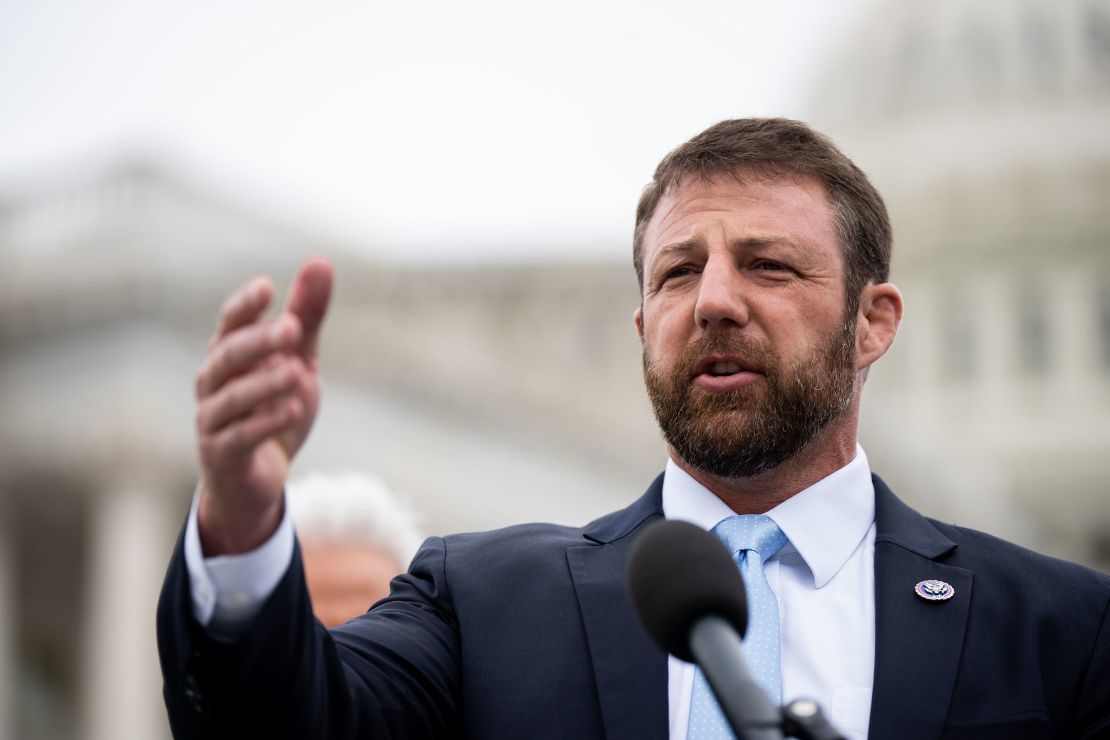
When the candidates in the Republican primary in Oklahoma’s special Senate election to replace retiring Republican Sen. James Inhofe were asked during an August 2022 debate if they thought the 2020 election was a lie and if they thought Trump won, Rep. Markwayne Mullin responded by baselessly rejecting the verified fact that Biden earned more votes than any previous presidential candidate. Mullin said: “It’s gonna be very hard to convince me that Joe Biden received more election – or, more votes – than any other president in history. It is absolutely absurd to think that’s even possible.”
Mullin, who went on to win the primary, voted in 2021 to object to the congressional certification of Biden’s victories in Pennsylvania and Arizona. He tweeted at the time that he was objecting “due to all the fraud and uncertainty,” though there was and is no evidence of fraud even close to widespread enough to have changed the outcome. Two days prior to the vote, he told constituents that he “absolutely” did not think the election was honest.
Mullin’s Democratic opponent is former congresswoman Kendra Horn. Mullin’s campaign did not respond to a request for comment for this article.
Oregon: Jo Rae Perkins

Oregon Republican nominee Jo Rae Perkins has been a vocal proponent of the QAnon conspiracy theory, even posting a video of herself taking a QAnon oath in 2020. Perkins has also touted baseless conspiracy theories about the 2020 election – falsely proclaiming in December 2020 that “the Electoral College was stolen,” calling for a recount in November 2020 to “#StopCoupDeTat” (sic), and posting on Facebook in 2021 to push false claims about how the election was supposedly rigged.
When CNN asked Perkins for comment for this article in August, and informed her for fairness that we planned to mention that she has promoted false claims about the election being rigged against Trump, she responded in an email: “I will not answer your questions since you already have a skewed opinion without talking to me directly. How do you know the claims are false?”
Perkins, a local Republican activist whose website says she has worked as a real estate agent, personal banker, financial advisor and insurance agent, was on the steps of the Capitol during the insurrection of January 6, 2021. She has said she does not support the people who broke into the building, did not go inside and was there in part as a “citizen journalist.”
Perkins lost congressional races in 2014, 2016, 2018 and 2020. She is now mounting a longshot effort to unseat Democratic incumbent Sen. Ron Wyden.
Pennsylvania: Mehmet Oz

Pennsylvania Republican nominee Mehmet Oz has very vaguely raised doubts about the 2020 election – declaring during the 2022 primary that “there are so many different things that happened” and saying “we cannot move on.”
Asked by a Philadelphia talk radio host in March 2022 if Biden legitimately won Pennsylvania in 2020 (Biden did, by more than 80,000 votes), and if there was fraud (there was only a tiny amount of known fraud in Pennsylvania, some of it committed by Trump supporters), Oz ignored the first question and said, “Oh, there was definitely fraud.” When the host asked Oz once more if he believes Biden legitimately won Pennsylvania, Oz dodged again and said: “He’s the President.”
Oz has similarly avoided answering directly when asked if Biden was the legitimate winner of the 2020 election on the whole, answering that Biden is clearly the president. The Oz campaign stuck to that line in early September 2022 when CNN asked for Oz’s position. (Oz has said, however, that he would have certified the election if he had been in the Senate on January 6, 2021, explaining that it isn’t a senator’s job at that point to question states’ decisions.)
Oz is running for the seat being vacated by retiring Republican Sen. Pat Toomey. His Democratic opponent is John Fetterman, the state’s lieutenant governor.
Utah: Mike Lee
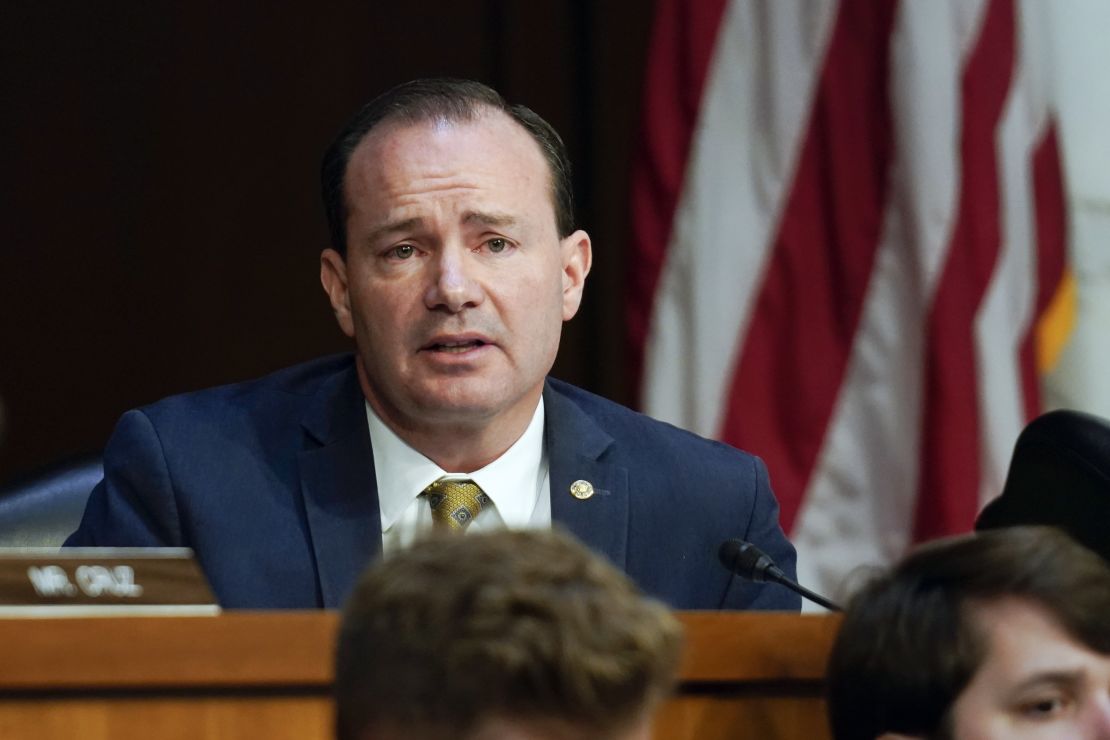
Incumbent Utah Sen. Mike Lee voted to certify Biden’s electoral votes on January 6, 2021, saying in his floor speech that the only constitutional role for Congress was to open and count the electoral ballots. Two weeks later, Lee congratulated Biden on his inauguration as president.
But Lee had previously tried to overturn Biden’s victory.
Text messages between Lee and then-White House chief of staff Mark Meadows, obtained by the House select committee investigating the January 6 attack on the Capitol and by CNN, show that Lee made extensive behind-the-scenes efforts, before January 6, to try to find a way to keep Trump in office.
Lee pressed Meadows four days after Election Day to have the White House meet with attorney Sidney Powell and hear her “strategy to keep things alive and put several states back in play.” Later in the month, Lee expressed concerns about Powell’s wild claims. But on November 23, 2020, Lee promoted another lawyer who was trying to overturn the election, John Eastman, and also suggested an “audit” of ballots in Pennsylvania, Wisconsin, Georgia and Michigan – baselessly claiming to Meadows that “something is not right in a few states.”
Then, on December 8, 2020, Lee floated the idea of states won by Biden appointing fake pro-Trump electors: “If a very small handful of states were to have their legislatures appoint alternative slates of delegates, there could be a path.” On January 4, 2021, just two days before the congressional vote, Lee texted, “We need something from state legislatures to make this legitimate and to have any hope of winning.” He also texted that he had been “calling state legislators for hours today” and was “going to spend hours doing the same tomorrow.”
Lee claimed to Utah’s Deseret News in April 2022 that he did not urge state legislators during these phone calls to adopt alternate electors: “At no point in any of those was I engaging in advocacy. I wasn’t in any way encouraging them to do that. I just asked them a yes or no question.”
In June 2022, Lee spoke supportively of a right-wing film that makes baseless claims of election fraud. He said the film “does raise significant questions about what might have happened in that election” and that, although Biden was legitimately chosen by the Electoral College, “that doesn’t mean that things didn’t happen along the way.”
Lee’s main opponent in the Senate race is independent candidate Evan McMullin. Lee’s office did not respond to a request for comment for this article.
Washington: Tiffany Smiley
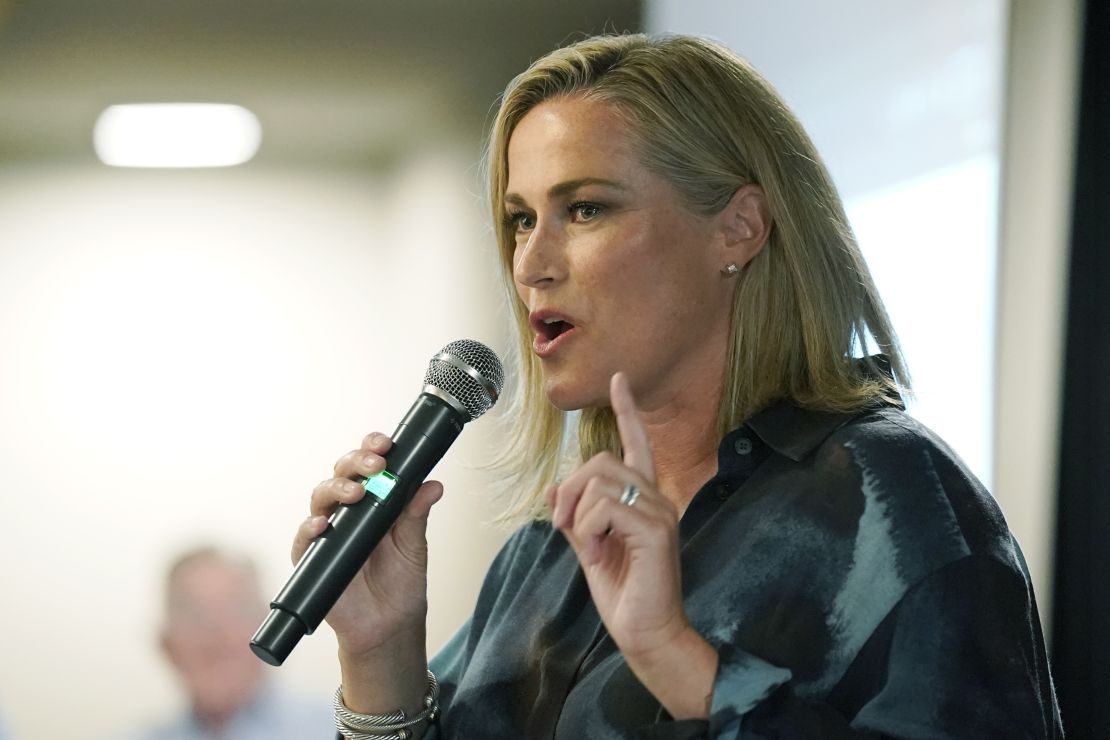
Tiffany Smiley, a nurse and veterans’ advocate, has questioned the legitimacy of the 2020 election on her campaign website. The site’s “issues” page claims that “the 2020 elections raised serious questions about the integrity of our elections and caused millions of Americans to question their confidence in our electoral process.” (A redesign after Smiley won the Republican primary, previously reported by HuffPost, took the link to the “issues” page off of the site’s main menu, replacing it with an “agenda” page that does not have an “election integrity” item at all.)
Smiley campaign spokesperson Elisa Carlson claimed in an August email to CNN that “Tiffany’s position has always been that Joe Biden is our duly elected President. However, she acknowledges that there are many who have concerns surrounding the 2020 election.” But in a July interview with FOX 13 Seattle, before Smiley became the top Republican vote-getter in the state’s top-two primary in August, Smiley would not answer directly when asked if Biden was “duly elected.” Smiley said instead: “I live in reality. Joe Biden is – is our president.”
When CNN asked Carlson for evidence of Smiley having publicly said Biden was “duly elected,” Carlson did not provide any – instead sending along another interview in which Smiley also said “Joe Biden is our president.” And in a subsequent interview with CNN’s Dana Bash in early September, Smiley would only answer confusingly when asked if Biden was legitimately elected, saying, “Yes Joe Biden is our president.” (When Bash followed up by noting that Smiley didn’t say Biden was legitimately elected, Smiley said, “Yes I think I made it clear: he is our president.”)
Smiley is challenging incumbent Democratic Sen. Patty Murray.
Wisconsin: Ron Johnson
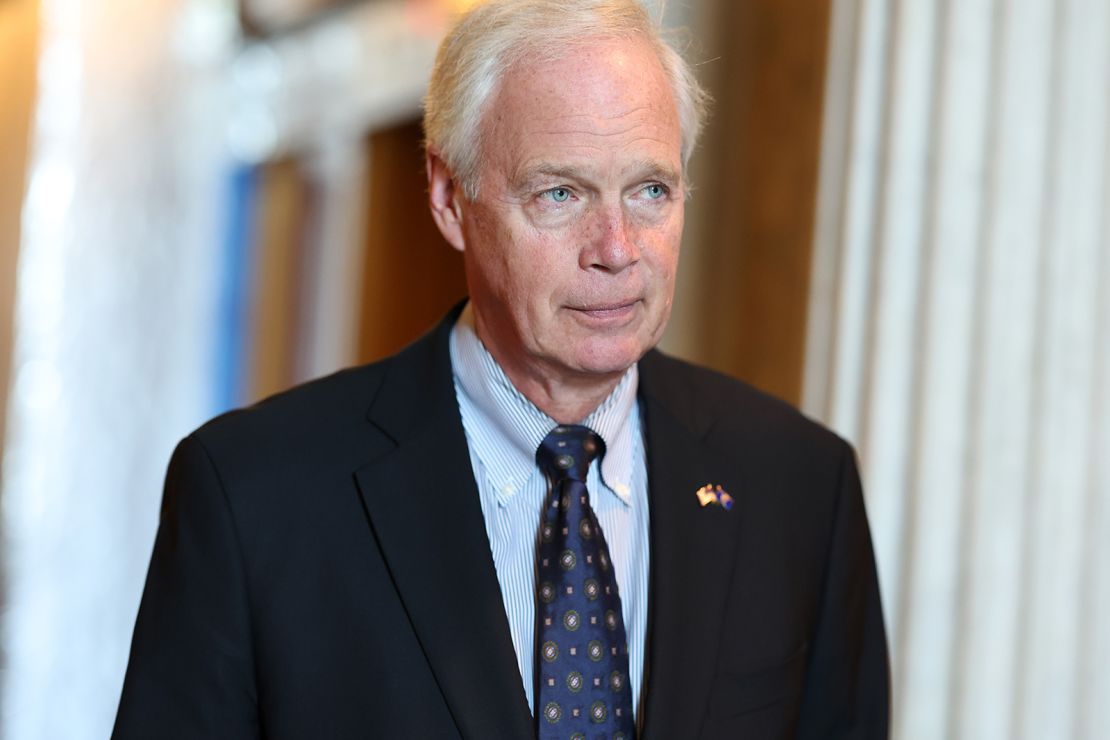
Incumbent Wisconsin Sen. Ron Johnson played a role in the Trump campaign’s efforts to overturn Biden’s victory in his state, though he maintains that his involvement was brief and insignificant.
On January 6, 2021, the day Congress was to certify Biden’s victory, an aide to Johnson texted an aide to Vice President Mike Pence, who was presiding over the joint congressional session, to say that Johnson needed to hand Pence something, according to text messages disclosed by the House January 6 committee. When the Pence aide asked what it was, the Johnson aide said it was “alternate” slates of electors – in other words, fake pro-Trump electors – for Wisconsin and Michigan, states actually won by Biden.
Pence’s aide told Johnson’s aide not to hand that material to Pence, and Johnson’s office did not do so; Johnson subsequently dismissed the situation as a “complete non-story.” But after Johnson claimed in June 2022 that he had been “basically unaware” of the “staff-to-staff” interaction with Pence’s office, “wasn’t involved” and “had no knowledge of this,” he acknowledged later the same week that he had personally connected his aide with a lawyer for the Trump campaign who was pushing the fake electors.
In August 2022, Johnson again acknowledged the involvement he had initially denied but said his role was trivial. He told WISN 12 News: “My involvement in that attempt to deliver spanned the course of a couple seconds; I think I fielded three texts, and sent two, and talked to my chief of staff that somebody wants to deliver something.”
Johnson has been hard to pin down on the legitimacy of the 2020 election. In December 2020, he called the election legitimate and said that, although he soon planned to hold a Senate hearing on “irregularities,” he hadn’t seen anything that would change the fact that Biden won. In early January 2021, though, he complained of “so many irregularities,” cited false allegations of tens of thousands of illegal votes in Nevada, and signed on to the joint statement, along with Kennedy, Lankford and other Republican senators, declaring his intention to reject certification of “disputed states.”
Johnson ended up changing his mind and approving certification after the January 6 riot at the Capitol, saying that things were different in light of what had just transpired. Months later, he was filmed telling an undercover liberal activist that there was “nothing obviously skewed about the results” in Wisconsin and that Trump lost merely because he got tens of thousands fewer votes than Republicans running for the state legislature – but he then went on to tell The Washington Post that he still thought there were “many” unexplained “irregularities” in the election.
Johnson spokesperson Alexa Henning said in an email last week: “The Senator accepted the results of the election over a year ago. As he has stated over and over, his goal with investigating election irregularities was to simply restore confidence in our election system by resolving suspicions with full transparency and public awareness. The Senator intended to transparently address the problem of the high level of public skepticism about the 2020 election.”
Johnson’s Democratic opponent is Wisconsin Lt. Gov. Mandela Barnes.
Update: This article has been updated to add comments made by Don Bolduc after he won the Republican nomination in New Hampshire.






